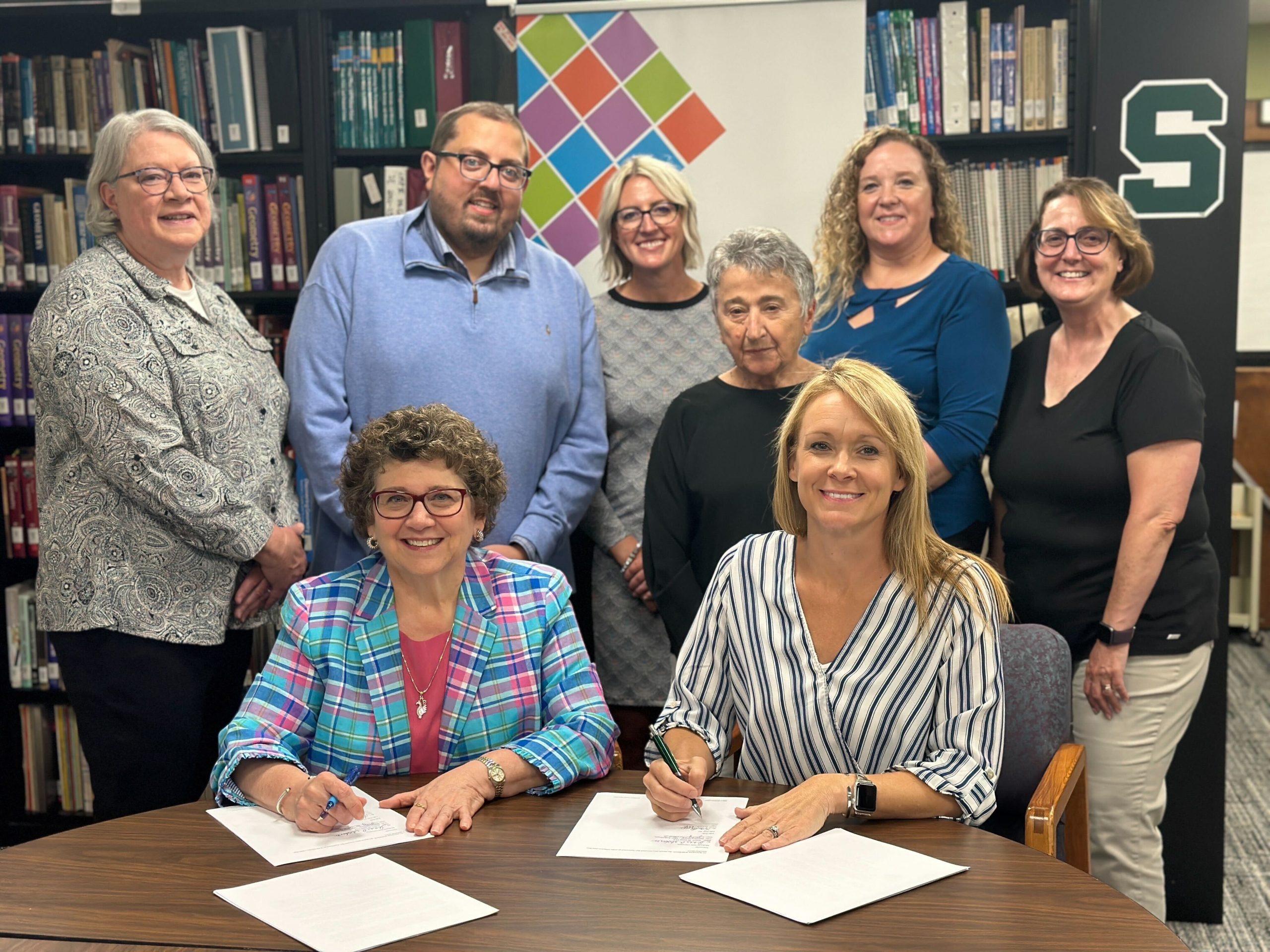The journey of Connected Mathematics4 (CMP4), Michigan State University’s (MSU) innovative middle school mathematics curriculum, marks a significant milestone this academic year as it transitions from development to active classroom use. This fourth edition of the CMP curriculum builds on a legacy spanning over 30 years, originally developed at MSU with support from the National Science Foundation and previously published by Pearson Education.
In late September 2024, educational materials developer, manufacturer, and curriculum publisher Lab-Aids formally introduced CMP4 at the National Council of Teachers of Mathematics (NCTM) conference. The program found great appeal at the conference and, as a result, became publisher-approved. This latest update brings problem-centered learning to a new generation of students, backed by three decades of research and classroom success.

CMP4 emerged from a 2023 partnership between MSU and Lab-Aids. The collaboration was facilitated by MSU Technologies (MSUT), which played a pivotal role in transitioning CMP4 from academic innovation to a classroom-ready curriculum. According to Anne Di Sante, Executive Director of MSUT, their mission is to catalyze university-developed technologies into real-world applications. CMP4 stood out among MSUT’s portfolio as an advanced, research-based curriculum ready for commercialization.
The collaboration paired MSU’s long-established CMP educational system with Lab-Aids’ 60-year track record of developing hands-on science curriculum materials. President of Lab-Aids, Jonathan Atkins, expressed his enthusiasm for CMP4, stating, “We’re opposed to the ‘stand and deliver’ method. Students have to have relevancy. They’ve got to see how math can be used in the real world to solve problems. This guiding principle is what can help motivate them to become effectual, productive citizens.”
CMP4 uses a group learning approach where topics are introduced, followed by a challenge segment, and then explored through sequenced problem sets that prompt students to think critically. Elizabeth Difanis Phillips, CMP author and Senior Academic Specialist in Program in Mathematics Education, noted, “CMP4 is not just about getting it right. It reflects the way you learn. You have a problem. You solve it. Then you explain what you learned in the process.”

CMP4’s pedagogical approach is framed by the “Arc of Learning,” a trademarked model developed during the curriculum’s evolution. This framework describes how student understanding deepens, emphasizing reflection and connection-making. Students are encouraged to “mathematize” real-world situations, a process that helps them extract and apply mathematical principles from everyday experiences.
The curriculum’s development involved extensive testing and refinement, with more than 500 teachers participating in a three- to four-year field test program. Feedback has been extremely positive, with teachers praising the curriculum’s real-world relevance and its capacity to foster deeper mathematical thinking. The CMP team identified core mathematical ideas essential for middle school students and developed sequences of conjectural problems to support robust learning.
While mathematics is new territory for Lab-Aids, their shared instructional philosophy with CMP has proven synergistic. Math Education and Curriculum Specialist Sandy Fritz, EdD, highlighted how Lab-Aids’ science expertise translated to math support: “When educators transition from traditional teaching methods to a problem-centered curriculum, professional learning is crucial. Lab-Aids provides tailored professional learning and created organized classroom material kits, including reusable card sorts and game boards, to reduce teacher preparation time.”
CMP4 includes more interactive STEM components like matching activities, card sorts, games, and experiments. These materials reflect Lab-Aids’ signature hands-on style and are designed to enhance student engagement while supporting instructional goals.
Looking ahead, Lab-Aids has set its sights on international distribution. Sales Operations Manager Stephanie Wallace noted the growing interest in CMP4 across Canada, Europe, and Asia. “We are excited to share this student-centered approach to math with our international science customers who share this mindset,” she said.

CMP4 is widely recognized as the most researched mathematics curriculum in education history, with over 500 published articles and 70 doctoral dissertations. This deep research foundation continues to inform CMP4’s design and the robust implementation support offered by Lab-Aids.
The partnership between MSU and Lab-Aids reflects both organization’s shared educational mission. As Brian Copple, Technology Manager for the CMP deal, emphasized, “The best fit we found was with Lab-Aids, who was entrenched in curriculum for middle school science and was interested in expanding into the math space.”
CMP4 is available in print and digital formats, supported by a dedicated team at Lab-Aids committed to a successful rollout. The curriculum stands as a testament to collaborative innovation, pedagogical vision, and a firm belief that all students deserve access to meaningful, relevant mathematics education.
To read more about the fascinating journey of CMP4, check out these stories below:
Michigan State University Partners with Lab-Aids to Publish Connected Mathematics4
Is your company looking to collaborate with any of MSU’s vast number of distinguished researchers and innovators? Click Here.
About the MSU Innovation Center:
The MSU Innovation Center combines research partnerships, technology transfer, and startup support for MSU faculty who aim to see their research applied to make the world a better place.
Composed of Business Connect, MSU Technologies, and Spartan Innovations, the MSU Innovation Center aims to amplify the impact of faculty research and drive economic growth while positively impacting society to solve real-world challenges with cutting-edge ideas.
Through mutually beneficial, long-term partnerships with the private sector, we connect MSU faculty with companies for corporate-sponsored research collaborations. We also play a key role in facilitating the commercialization and public use of technologies and copyrightable materials, moving MSU’s innovations from the lab to the marketplace. Importantly, we provide significant support for faculty entrepreneurs in establishing startup companies based on technologies developed at MSU.
